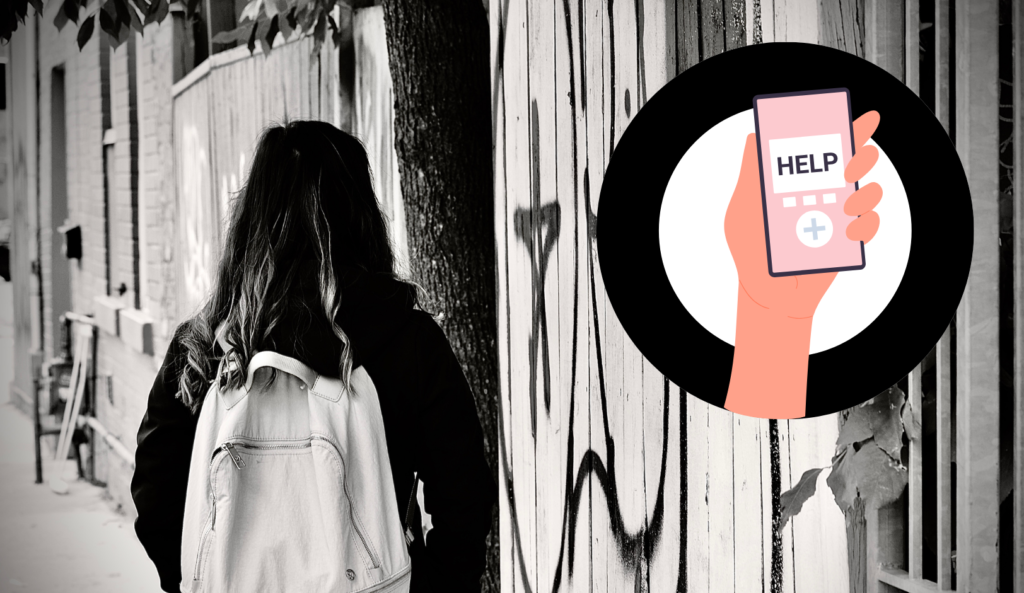By Cheryl Fung
February 15, 2024
Unlocking Resilience: How Online Mental Health Interventions Promote Self-Care
New research suggests online interventions may help with university student mental health.

Original image by Cheryl Fung.
After spending late nights catching up on assignments and studying for midterms, you realize the amount of stress you’re under. But with deadlines looming and your future at stake, you just can’t afford cutting out time to de-stress. Making appointments and blocking out hours of your day to go to therapy or to do fun activities does not seem feasible. Academic stress continues to bog you down and one day you find yourself crying in your room. You start to feel like an imposter and wonder whether you deserved to come to university in the first place.
Finding a balance between schoolwork and self-care is not easy. Not only do you worry about time constraints, but you might also be concerned with the stigma that comes with saying you go to therapy. However, the good news is that there may be a solution. New research suggests online interventions may help with university student mental health.
In 2022, Dr. Norman Farb and his graduate student Yiyi Wang tested online interventions for student stress-management and coping skills cultivation. They first explored mindfulness training, which is a type of training designed to help you become aware of your inner state by observing your thoughts and emotions. The online mindfulness training that they developed, which allows for participants to choose various online activities per session, was effective in lowering negative emotions and ruminating thoughts. The results show promise in student mental health support while maintaining convenience and avoiding stigma by allowing students to get help from the privacy of their room. Students sometimes find themselves afraid of judgment from their family when mention they want mental health help.
“I look at these types of interventions as ‘starting points’ on a journey of reflecting on and improving mental health,” says Dr. Farb. Stress mindset training was another type of online intervention tested by Dr. Farb. Remarkably, people experienced much more positive emotions at the end of the training and developed better stress management skills. However, Dr. Farb emphasized that these interventions are not meant to replace traditional psychological treatment: “Traditional mental health supports pick up when things go wrong, and you need help and someone to work with you to get things back together. So these apps are not a replacement for that. I see the work described in the paper as supporting traditional methods, not competing with them.”
These new options can help students who might not otherwise seek mental help. Just two years prior to the release of this research, a mathematics and computing student at the University of Toronto committed suicide, calling attention to the need for change in student mental health programming due to limited access to resources and willingness to engage with available resources. Online applications to support student mental health is one of the changes we have been looking for. Due to privacy concerns, the effect of new interventions on suicide rates might not be a feasible investigation. However, Dr. Farb emphasizes that online interventions may still be useful in for this purpose: “Instead, what I think would be more useful might be to use the app to suggest to students when they might want to reach out for help, and then to follow up with them a bit later to see if they did — this would respect their privacy and keep control with the students, while still letting us know whether our detection of vulnerability or risk makes sense to students and empowers action.”
Taking unique cultural factors into consideration, some students, like those in Asia, are particularly vulnerable to avoiding mental health resources. Stigma against those that seek mental health help remains strong but academic stress continues to soar. Although Dr. Farb’s study was conducted with a Canadian sample, online mental health resources would be particularly useful for students from such cultural backgrounds. Dr. Farb’s research was advantageous in this respect in that there was participant diversity in his study. Dr. Farb mentions that he remains open to expanding his research cross-culturally in the future despite the possible challenges of doing so.
“We are happy to expand the research cross culturally, and one good thing about working at UTM is that there is already a diverse group of cultural and ethnic backgrounds in the students we study.” Dr. Farb is hopeful that the results can continue to help students. He has completed a few more studies since the publication of this paper, and the effects of mindfulness training appear strong. Steps are continuously being taken to evaluate the applicability of stress mindset training post-pandemic. These online low-cost options will definitely remain an attractive option for students.
“Brief, online mental health assessment and training interventions like the one described in the paper are probably among weakest / lightest form of mental health support- there isn’t a real expert interacting with you. On the other hand, these types of interventions are low commitment, low cost, and can be given to many people (they are ‘scalable’) without affecting cost or access,” says Dr. Farb.
While being cost-effective, another goal of Dr. Farb’s is to create a virtual buddy, making the application fun with interaction. As new promising psychological interventions arise, we hope to see a future where our students’ well-being is prioritized, creating an optimal environment for academic success.
Wang, Y., & Farb, N. A. (2022). Web-based training for post-secondary student well-being during the pandemic: a randomized trial. Anxiety, Stress, & Coping, 36(1), 1-17. https://doi.org/10.1080/10615806.2022.2079637
